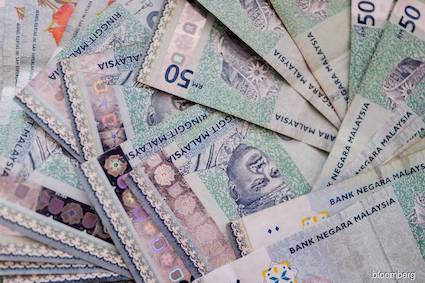M’sian Ringgit hits 25-year low against the USD

(Focu Malaysia) – THE Malaysian ringgit plummeted to its lowest level in 25 years against the USD, dropping by 0.3% to 4.7635 per dollar, marking its weakest performance since the 1997 Asian Financial Crisis.
This fall was exacerbated by the dollar’s surge and a widening rate differential with the US, according to a report by Bloomberg. The 10-year US Treasury yield rose to 4.91%, intensifying the pressure on emerging market currencies including the ringgit.
“It’s the worst performer in Asia this year after the (Japanese) yen,” said the financial news service.
At 9am today, the local currency traded at 4.7615/7650 against the USD, compared to Wednesday’s (Oct 18) close of 4.7445/7485.

Bank Muamalat Malaysia Bhd chief economist and social finance head Dr Mohd Afzanizam Abdul Rashid expressed concerns about the impact of the ongoing Palestine-Israel conflict on the currency market.
“The US president’s unequivocal support for Israel could potentially prolong the conflict; under such circumstances, the dollar is likely to be the main beneficiary, given its safe haven status,” Bernama quoted him as saying.
The ringgit also depreciated against other major currencies except the British pound, which strengthened to 5.7809/7852 from 5.7869/7917 at Wednesday’s close. It fell against the euro to 5.0181/0218 from 5.0140/0182 and was lower against the yen at 3.1794/1820 from 3.1685/1714 at yesterday’s close.
Additionally, it traded mostly lower against other Asian currencies.
Prime Minister Datuk Seri Anwar Ibrahim had recently informed Parliament about the government’s efforts to reduce reliance on the USD in trade and investments. Bank Negara Malaysia (BNM) is exploring initiatives to encourage countries to trade in local currencies.
This is in line with his view that Malaysia should reduce its reliance on the USD in trade and investments.
Negotiations with countries such as China, Indonesia and Thailand have resulted in the use of local currencies in transactions, although challenges remain, particularly in commodities and international trade.
“We succeeded in using local currencies with Indonesia, Thailand and China. However, not all (countries) are involved in commodity and international trade. That is why I suggest de-dollarisation,” he said.
Moreover, to further reduce reliance on the USD, the Finance Minister proposed the establishment of an Asian Monetary Fund (AMF) aimed at providing Asian countries with a better alternative during financial crises.
He also announced plans to implement global taxation for companies with international revenues of at least €750 mil, replacing the USD as a measure.

